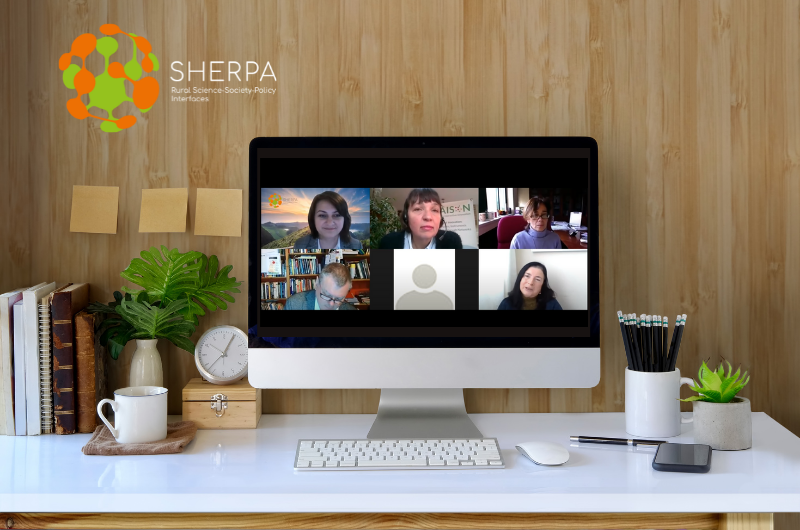On 2 December 2021, SHERPA organised a webinar to discuss the engagement of local actors in the policy process at regional, national or European levels. It presented the findings and lessons learned from Multi-Actor Platforms and their work during the first years of the project. This led to a Learning Agenda for rural interfaces to reflect further, by asking the right questions on how local actors can contribute to the policy processes.
Guest speakers from Horizon 2020 funded projects, Polirural, LIAISON and MOVING, corroborated the findings. Even though all three projects are at different levels of implementation, the lessons and experience shared at the webinar were fruitful and invited to reflection on the challenges for local actors engagement.
SHERPA has focused on engaging specific groups of stakeholders from science, society and policy. Stricking a balance among these actors is not an easy task. LIAISON’s findings point out that science, thus researchers tend to be overrepresented in these types of platforms. Furthermore, LIAISON found that is difficult to ensure a balanced composition and continuity of the group due to stakeholder fatigue and busy agendas of key players. A valuable insight from the project is that there is no ‘one-size-fits-all’ approach to engagement. All activities, channels and tools need to adapted or adjusted to each regional platform.
Polirural considered two groups of stakeholders: beneficiaries (those that are impacted directly by the policies) and actors (referring to policy-makers at local and regional levels). The project sought to create and facilitate effective engagement with actors by developing situational awareness of current challenges, laying out the process for engagement, and providing timely and curated content.
MOVING is currently setting up a Community of Practice (CoP) to enable collaborative development of actionable and solution-oriented knowledge. The project is building the CoP based on three pillars: 1) domain (a shared interest of the actors on mountain value chains); 2) community (building relationships and trust among members); and 3) practice (developing shared resources).
The webinar was not only a way of sharing these findings and recommendations on the sustainable engagement of actors in the policy process, but also new connections were made and linkages will emerge in future activities.
One key message coming from the webinar and the projects, is that alongside continuous engagement of local actors, there is the need to explore, maintain and take advantage of existing channels that lead to contributing to policy-making. It is important for projects like these to identify early on the policy windows and feed into the process the harvested knowledge and evidence coming from these local platforms. Being able to do that plays on the motivation of the actors the projects engage, increasing their commitment to the activities when seeing their contribution is meaningful.

Did you miss the webinar? You can watch the recording here. All presentations are available on the event webpage.
Read more about the SHERPA Learning Agenda for rural interfaces and the full report on the findings and lessons learned.
